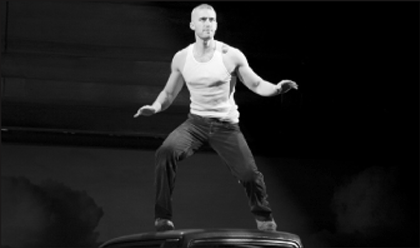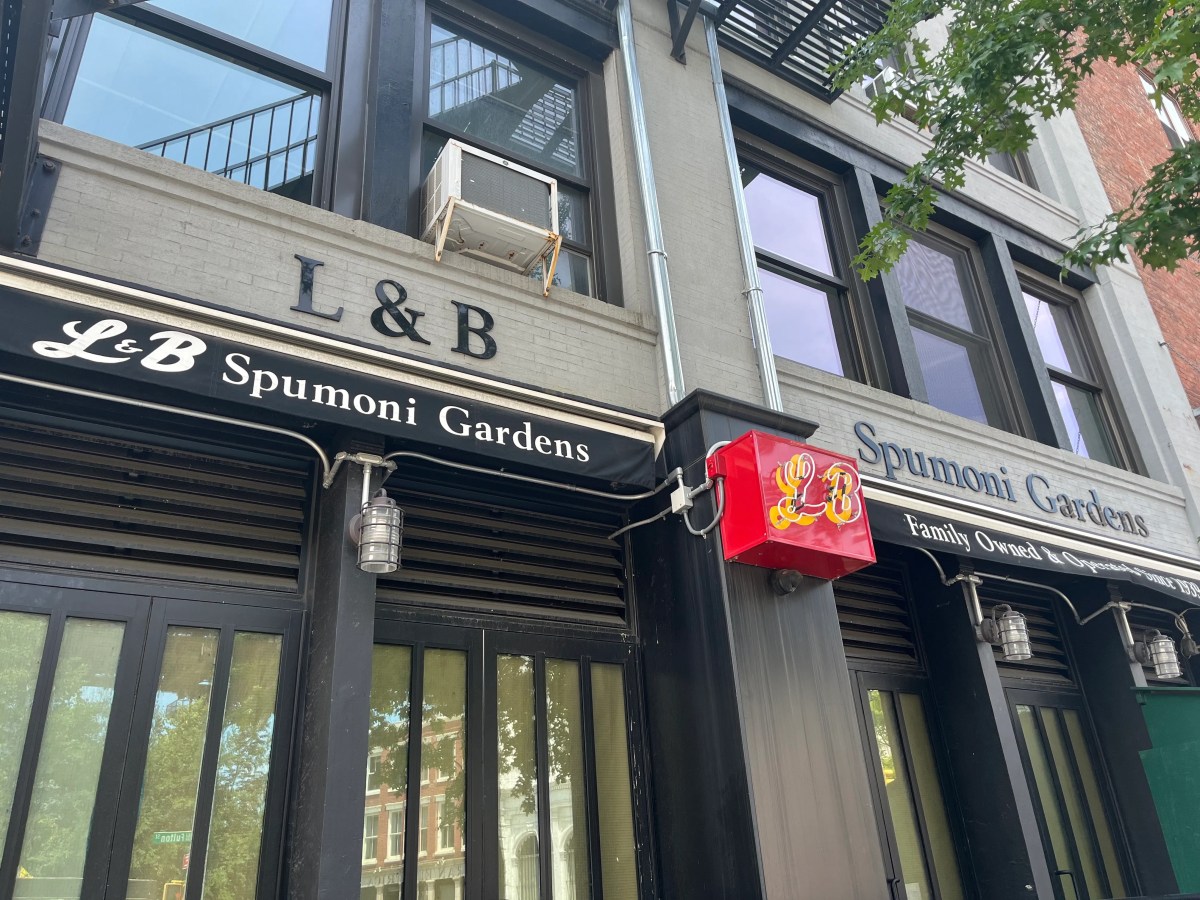By Rachel Fershleiser
Stop me if you’ve heard this one: Chelsea’s Atlantic Theater Company is presenting a brand new musical, aimed at a younger and less showtune-oriented audience. Michael Mayer is directing, a well-known singer/songwriter did the score, and one actor and actress play all the secondary roles.
“10 Million Miles,” recently extended through July 15th, is no “Spring Awakening” sequel, though the people counting the money and polishing the Tonys might wish it were. Instead it is as quiet and slow as Spring Awakening is loud and frenetic. It has the rolling, rumbling pace of a cross-country road trip and a heartfelt country soundtrack courtesy of Patty Griffin. It also has a baffling blend of genuinely touching moments and cringe-inducing schlock.
In the theater’s converted-church interior, a center-stage pickup truck greets the crowd. Water towers and power line poles edge the stage, completing designer Derek McLane’s anywhere U.S.A. motif and casting interesting shadows around the room. A clever elevated highway slants overhead to hold the band, and the ingenious transformation of the truck into other set pieces, including a Denny’s table, draw audible laughter from the audience.
It’s unfortunate the same can’t be said for the script’s clunky attempts at humor. Again and again, lines like “Know how I could tell you’re lying? Your lips were moving” fall flat, crying out for even an ironic rimshot to pierce the awkward silence. Almost every scene rings false in some way, with stilted dialogue and tired clichés slowing down the otherwise sweet story of two messed-up kids taking to the open road in search of love, luck, and self-improvement.
Duane (Matthew Morrison) is a smart-mouthed army drop out, and Molly (Irene Molloy) is a wounded wild child, determined to quit drinking and turn her life around. Both are improbably good-looking, but only Morrison remains alluring when he speaks.
As the two discuss the tribulations of working-class Florida life, their trite, facile insights bore the audience and insult the intelligence of people from underprivileged backgrounds. Playwright Keith Bunin’s previous work, especially “The Busy World is Hushed,” explored similar themes about religion, fate, and faith in such a smart and sophisticated way, it almost seems like he has done himself the greatest disservice by not respecting his own characters. Indeed an elderly audience member told me on the way out that she thought the play “showed a lot of reality. Well, reality for certain groups of people.”
Skipp Sudduth and Mare Winningham round out the cast playing newlyweds, army buddies, elderly relatives, and diner dwellers with equal panache. Winningham is especially terrific, lending the show’s only real gravitas as she fully realizes a variety of people with just a small affectation and a few lines of dialogue.
But these ninety minutes are all about the music, and it really is lovely. Patty Griffin’s alt-country songs project emotion and lyrical depth that suit the musical theatre stage quite well, though not always the story. Unlike Duncan Sheik’s score for “Spring Awakening,” this is less a collaboration than a jukebox musical, cherry picking proven favorites from previous albums and wedging them into a thin narrative. Scenes about flying kites and baking pies seem inexplicable, and die-hard Griffin fans will likely find these new contexts for beloved songs off-putting. For relative newcomers, though, they bring so much life to the often-tepid proceedings that they are the best reason to attend. The “might”-“night”-“right” rhymes may not dazzle Sondheim devotees, but if anything, Griffin’s musical character portraits are too rich and three-dimensional for the walking stereotypes Bunin has created.
Ultimately, “10 Million Miles” pleases and disappoints in nearly equal measures. Though the style and musical choices are somewhat unconventional, this modern show is a throwback to pre-Oklahoma! musicals, with songs stuck into the story, rather than moving it along. It has corny jokes, flat characters, and artificial dialogue, but when the band is jamming, the cast is singing, and the ingénue and juvenile are in each other’s arms, it feels like a good, old-fashioned, all American love story, taking us along for the ride.






































